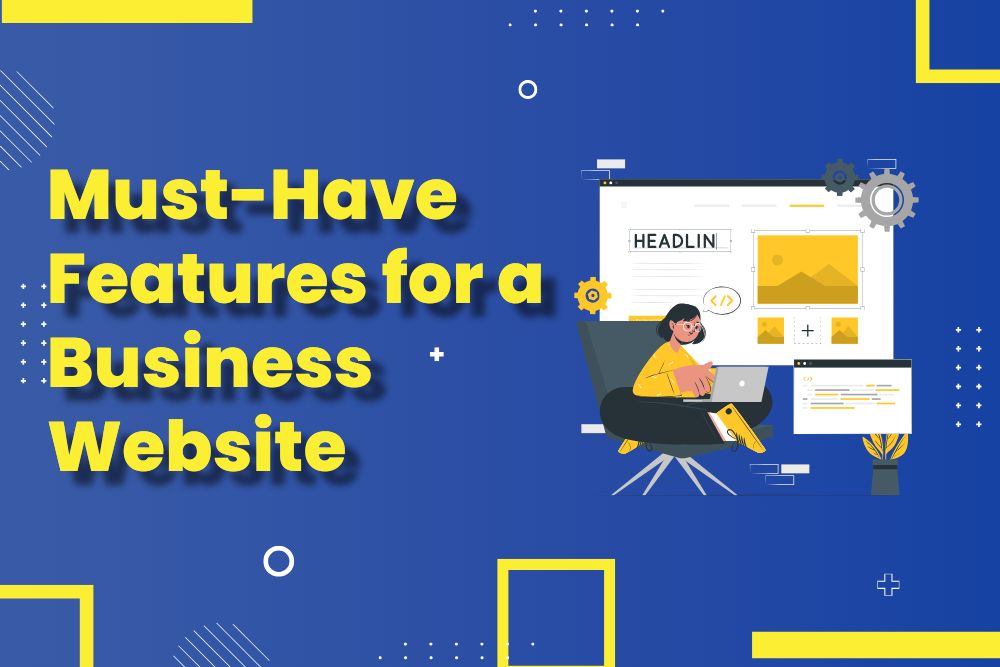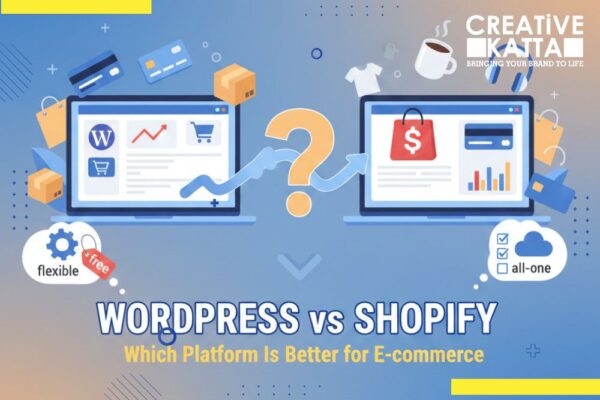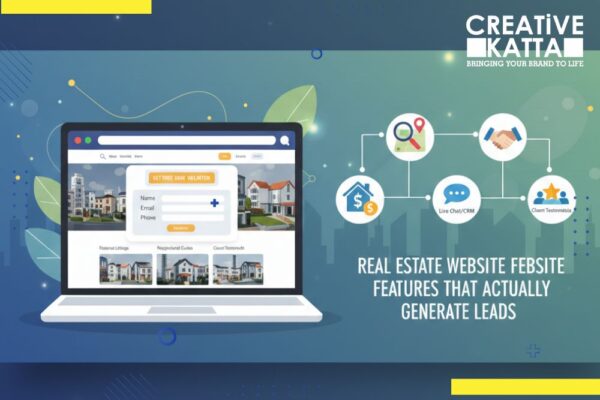Must-Have Features for a Small Business Website in 2025
In today’s digital-driven market, having a website is no longer optional—it’s essential. For small businesses, your website acts as the first impression, your marketing engine, and your lead generator—all in one. Therefore, building a website that is both user-friendly and result-oriented is crucial.
At CreativeKatta, we understand the unique challenges small businesses face online. That’s why we’ve compiled this comprehensive guide highlighting the must-have features your small business website should include. These features will not only boost your online visibility but also help you convert visitors into loyal customers.
1. Mobile-Responsive Design
To begin with, a responsive design is non-negotiable. With more than 60% of web traffic coming from mobile devices, your website must adapt to every screen size—be it a smartphone, tablet, or desktop.
Why it matters:
- Enhances user experience across all devices
- Decreases bounce rate significantly
- Improves search engine rankings
In short, mobile responsiveness is the foundation of modern website design.
2. Fast Loading Speed
Next, speed is everything. Today’s users expect websites to load in under 3 seconds. If your site is slow, chances are users will leave before it even loads.
To improve speed:
- Compress images
- Use minimal and clean code
- Opt for fast, secure hosting
- Enable browser caching and CDN
As a result, you’ll not only retain visitors but also boost your SEO rankings.
3. Clear and Strategic Call-to-Actions (CTAs)
Once users land on your site, you must guide them. That’s where strong, clear CTAs come into play. Whether it’s “Get a Quote,” “Call Now,” or “Shop Today,” your CTAs should be strategically placed throughout your website.
Furthermore, use action-oriented language and ensure they are visible on both desktop and mobile devices.
4. SEO Optimization from the Start
Search Engine Optimization (SEO) helps your website appear in search results when potential customers look for your services online.
For effective on-page SEO, make sure to include:
- Keyword-rich headings and subheadings
- SEO-friendly URLs
- Optimized meta titles and descriptions
- Alt text for images
- Internal linking for better crawlability
Ultimately, better SEO means better visibility—and more business.
5. Simple and Intuitive Navigation
Moreover, your website’s structure should be easy to follow. Visitors should find what they’re looking for within seconds. A clean menu, logical page hierarchy, and minimal clicks improve user retention.
Consider including:
- A sticky or drop-down menu
- Search functionality
- Footer navigation with key links
In other words, don’t make users think—make navigation effortless.
6. Prominent Contact Information & Google Map Integration
Also, make it easy for customers to reach you. Display your contact details—phone number, email, and business location—on every page, preferably in the header or footer.
Additionally, embed a Google Map on the contact page. This not only helps customers find you but also improves local SEO.
7. Real Testimonials and Customer Reviews
Trust is key in digital interactions. Including genuine testimonials from happy clients adds credibility to your brand. People trust peer experiences over polished sales pitches.
To illustrate:
- Display reviews on the homepage
- Include client logos or photos for authenticity
- Use sliders or rotating carousels for dynamic display
Consequently, potential customers are more likely to choose you over competitors.
8. An Engaging About Us Page
While services matter, people also want to know the story behind the business. A well-crafted About Us page can build emotional connections and show the human side of your brand.
For maximum impact, include:
- Your mission and values
- Founders or team profiles
- Business achievements and milestones
Above all, keep it authentic and relatable.
9. Blog or Resources Section
In addition to core pages, a blog section plays a vital role in driving organic traffic. Publishing valuable content positions your business as an authority in your niche.
With regular blogging, you can:
- Improve SEO through fresh content
- Educate your audience
- Share insights on social media
- Address customer pain points
Therefore, a blog is not just an option—it’s a powerful marketing tool.
10. SSL Certificate and Website Security
Security is another essential aspect that you should never overlook. Websites with HTTPS encryption build trust and rank better on Google.
Moreover, search engines flag non-secure websites, which can drive away visitors.
CreativeKatta ensures every website we build includes an SSL certificate and adheres to the best web security practices.
11. Integrated Analytics and Tracking
Without tracking, you’re flying blind. Integrating tools like Google Analytics and Search Console helps you understand how your website performs.
With analytics, you can:
- Track user behavior and session duration
- See which pages perform best
- Identify traffic sources
- Refine your marketing strategy accordingly
Hence, analytics is your key to continuous improvement.
12. Social Media Integration
Since users often discover brands through social platforms, it makes sense to connect your website with your social media accounts.
Consider including:
- Clickable social icons
- Embedded Instagram or Facebook feeds
- WhatsApp chat integration
- Share buttons on blog posts
This way, you increase engagement and build a consistent online presence.
13. Well-Structured Services or Products Page
Every small business website should clearly highlight its offerings. Dedicated pages for each product or service allow you to target keywords and provide in-depth information.
To optimize these pages:
- Use benefit-driven content
- Add visuals or demo videos
- Include FAQs and CTAs
- Showcase customer success stories if applicable
Consequently, users gain clarity and are more likely to take action.
14. Frequently Asked Questions (FAQs)
Besides service pages, an FAQ section answers common queries and improves user confidence. Plus, it can help your site appear in Google’s rich snippets.
Try to answer:
- Pricing-related queries
- Shipping, returns, or delivery info (for eCommerce)
- Technical or service-related concerns
- Business hours and contact procedures
As a result, your support workload reduces and customer satisfaction improves.
15. Legal Pages: Privacy Policy, Terms & Conditions, Disclaimer
Finally, your website should include basic legal documentation to comply with data privacy laws like GDPR and India’s IT regulations.
Legal pages protect both you and your users. Include:
- Privacy Policy
- Terms & Conditions
- Disclaimer (especially for blogs or affiliate sites)
With this in place, your site becomes both professional and legally sound.
To sum it up, a small business website must be more than just visually attractive—it needs to be functional, fast, secure, mobile-friendly, SEO-optimized, and focused on converting visitors into paying customers.
At CreativeKatta, we build powerful websites tailored to your goals, audience, and brand identity. Whether you’re starting from scratch or upgrading an old site, we ensure your digital presence is future-ready and conversion-driven.
Let’s Build Your Business Website Together!
Looking for a trusted partner to build or revamp your small business website?
Contact CreativeKatta today for expert, affordable, and SEO-friendly web development services in Bangalore and beyond.






